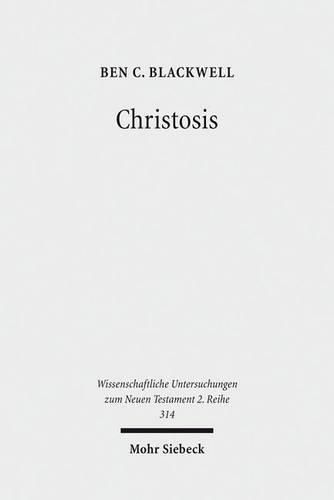Readings Newsletter
Become a Readings Member to make your shopping experience even easier.
Sign in or sign up for free!
You’re not far away from qualifying for FREE standard shipping within Australia
You’ve qualified for FREE standard shipping within Australia
The cart is loading…






With increasing interaction between Eastern and Western theologians, several recent biblical interpreters have characterised Paul’s soteriology as theosis, or deification. In response to these affirmations, Ben C. Blackwell explores the anthropological dimension of Paul’s soteriology to determine how helpful this characterisation is. Utilising the Wirkungsgeschichte of the Pauline letters, he first examines two Greek patristic interpreters of Paul - Irenaeus and Cyril of Alexandria - to clarify what deification entails and to determine which Pauline texts they used to support their soteriological constructions. The monograph then focuses on Paul’s soteriology expressed in Romans 8 and 2 Corinthians 3-5 (with excursus on other passages) and explores how believers embody Christ’s death and life, his suffering and glory, through the Spirit. Blackwell concludes with a comparison of deification as presented by these two Greek patristic interpreters and Paul’s soteriology, noting the substantial overlap as well as key differences.
$9.00 standard shipping within Australia
FREE standard shipping within Australia for orders over $100.00
Express & International shipping calculated at checkout
With increasing interaction between Eastern and Western theologians, several recent biblical interpreters have characterised Paul’s soteriology as theosis, or deification. In response to these affirmations, Ben C. Blackwell explores the anthropological dimension of Paul’s soteriology to determine how helpful this characterisation is. Utilising the Wirkungsgeschichte of the Pauline letters, he first examines two Greek patristic interpreters of Paul - Irenaeus and Cyril of Alexandria - to clarify what deification entails and to determine which Pauline texts they used to support their soteriological constructions. The monograph then focuses on Paul’s soteriology expressed in Romans 8 and 2 Corinthians 3-5 (with excursus on other passages) and explores how believers embody Christ’s death and life, his suffering and glory, through the Spirit. Blackwell concludes with a comparison of deification as presented by these two Greek patristic interpreters and Paul’s soteriology, noting the substantial overlap as well as key differences.